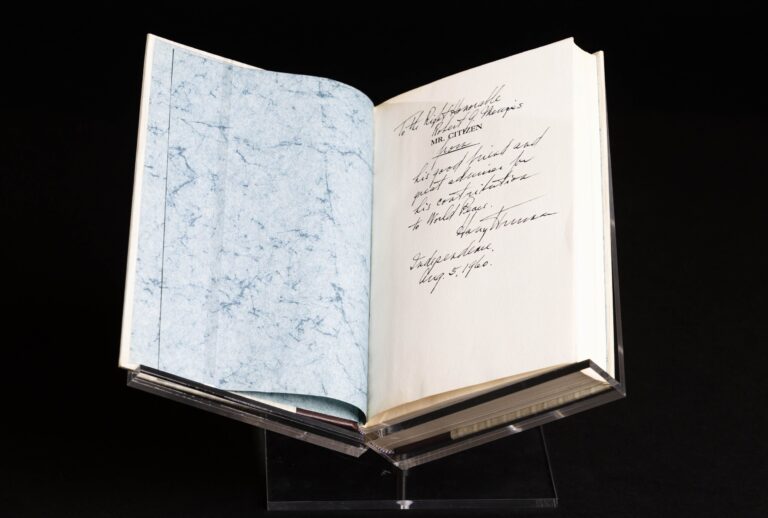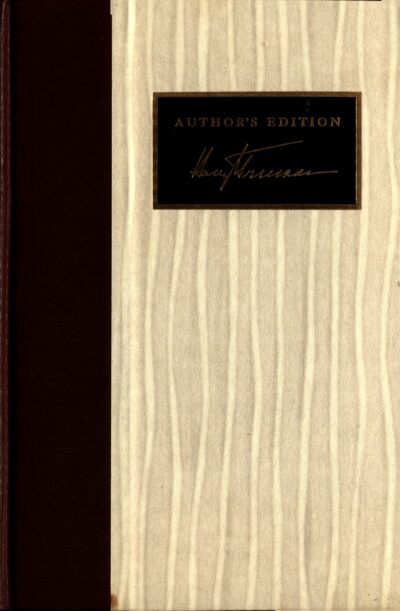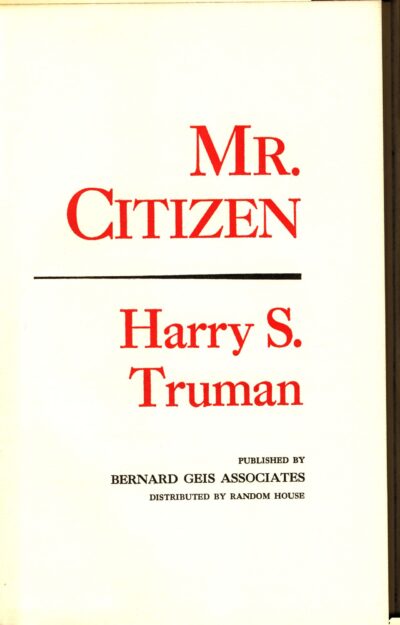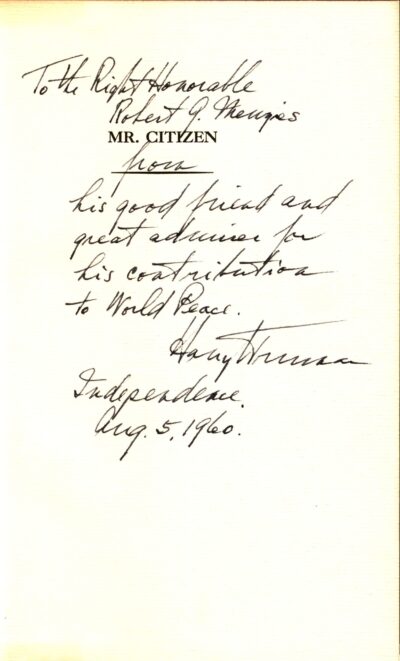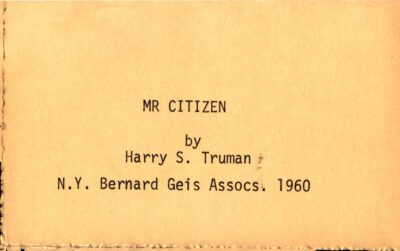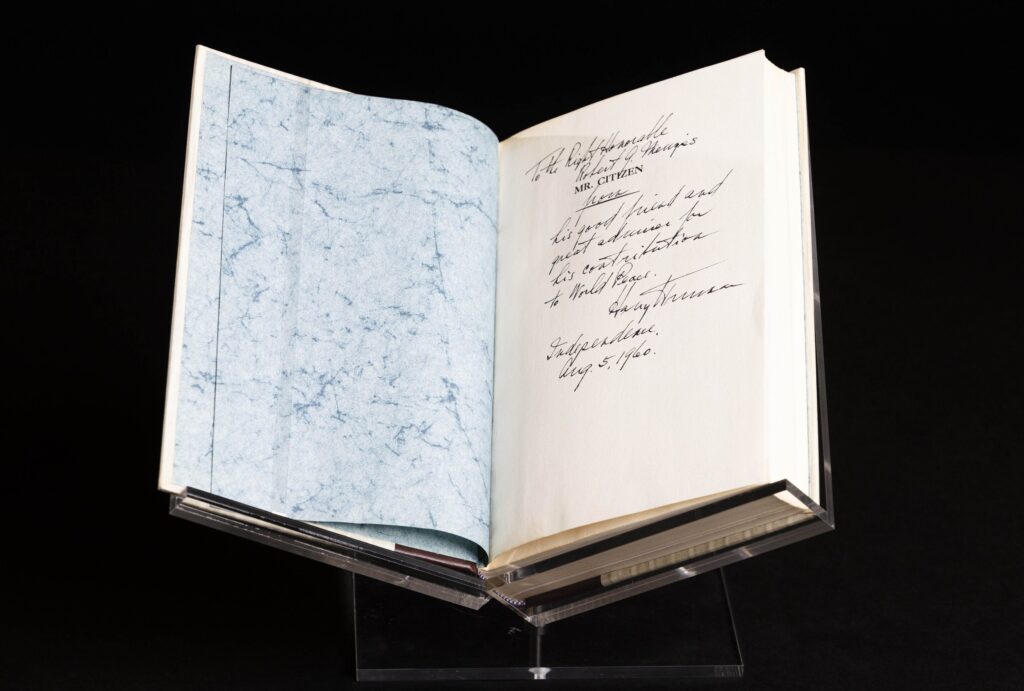Harry S. Truman was the 33rd President of the United States, serving from April 1945 to January 1953. Mr. Citizen is his autobiography, telling the story of his rise from a humble childhood in Missouri to a presidency that dealt with the momentous closing stages of the Second World War and the early Stages of the Cold War.
Over Robert Menzies’s record stint as prime minister, he had extensive interactions with several US Presidents including Roosevelt, Eisenhower, Kennedy, and Johnson, but his relationship with Truman was arguably the most productive. It was during the Truman years that Australia fought as part of American-led United Nations force in Korea, signed the controversial San Francisco Peace Treaty with Japan, and most importantly negotiated the ANZUS Treaty which continues to serve as the cornerstone of Australia’s strategic defence to this day. It was also under Truman than Menzies was invited to become the first Australian Prime Minister to address the United States Congress, an honour which spoke to the intimate bond between the two countries and which has since been repeated several times.
Menzies admired Truman as a man of decisive action, ‘taking momentous decisions that his ailing and ageing predecessor, the later Roosevelt, might not have taken.’ In this category Menzies listed the dropping of the Atomic Bomb, the Korean War, and the initiation of the Marshall Plan as epoch-defining choices made with resolve and follow through. Menzies particularly liked that Truman was not scared by opinion polls, and he had visited America during the 1948 election in which newspapers were infamously so confident of the result that they printed headlines before the votes had actually come in. During this visit Menzies as Opposition Leader met the President, heard him speak, and was privately assured by him that ‘I shall win!’.
In his memoir Afternoon Light, Menzies describes Truman as ‘a warm and friendly man whose smile was lit from within and not just switched on from without.’ He recalled Truman’s ‘good Missouri chuckle’, ‘native intelligence’, and the accommodating way he personally arranged for a loan of US Dollars when Australia desperately needed them. Notably, one of the few times in which Truman did not meet a request made by Menzies was when he pressed the President for a commitment of US troops in South East Asia. This Truman was not willing to make, demonstrating that it was quite the reversal when his successors subsequently poured vast resources into Vietnam and Indochina more broadly, and serving to highlight why at the time Australians were extremely grateful and supportive that they did.
It is somewhat ironic then, that Mr. Citizen describes South East Asia as ‘an area in which we [America and the democratic world] face immediate and serious trouble’, though the book portrays Indonesia and its large Communist Party, rather than Vietnam, as the pressing danger to ‘the free nations of Australia, New Zealand, the Philippines and Thailand’.
This is the only time that Australia is mentioned in the book, and Menzies himself does not earn a reference at all, suggesting that the country did not loom large in Truman’s conception of world affairs. Nevertheless, Menzies’s copy of Mr. Citizen, personally signed ‘To the Right Honorable [sic] Robert G. Menzies from his good friend and great admirer for his contribution to World Peace. Harry Truman. Independence. Aug. 5, 1960’, testifies to the fact that Truman did have a great deal of respect for the Australian leader and that he continued to think of him even after retirement.
You might also like...
Sign up to our newsletter
Sign up for our monthly newsletter to hear the latest news and receive information about upcoming events.

